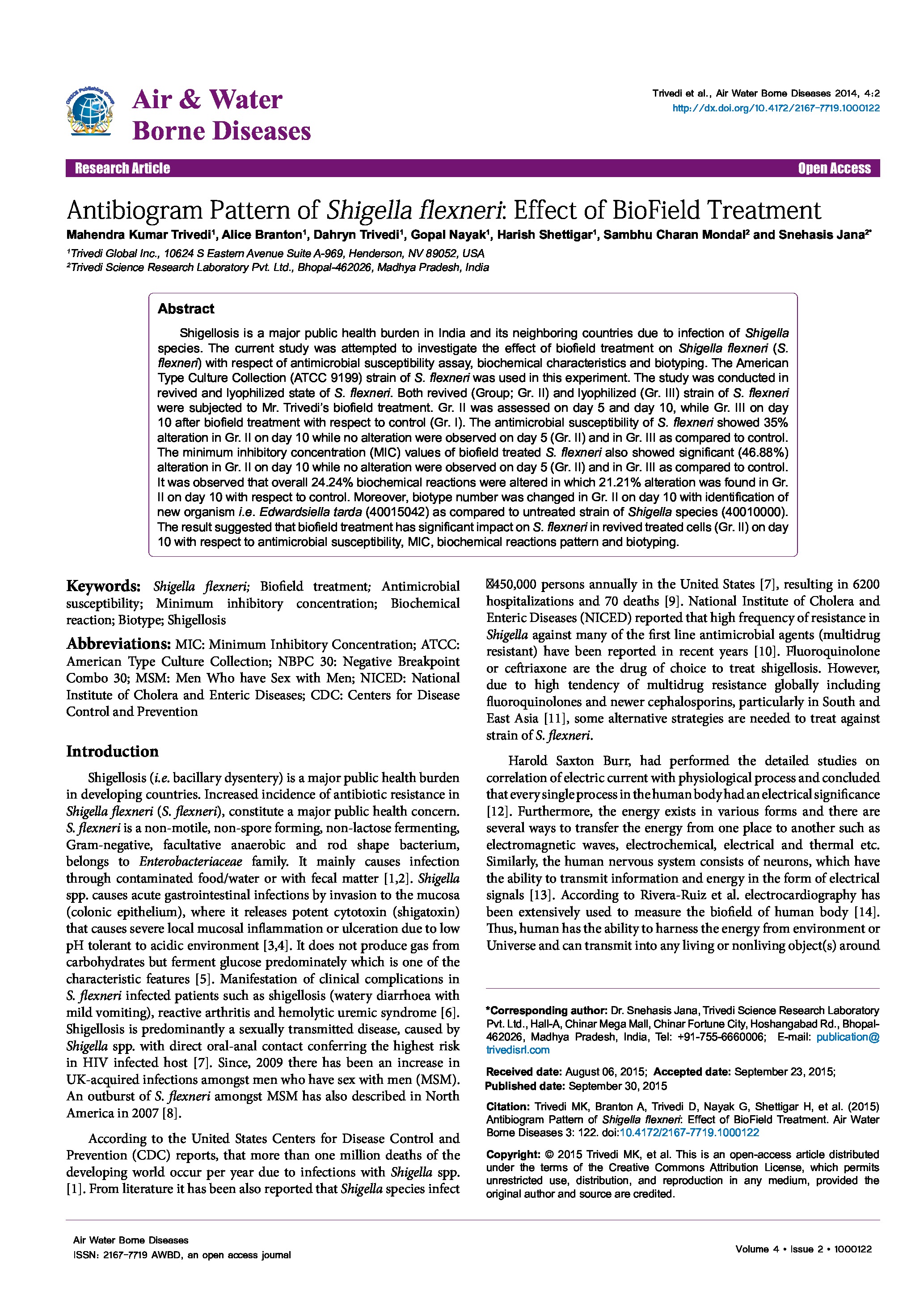Affiliation
Trivedi Global Inc., Trivedi Science Research Laboratory Pvt. Ltd.
Main category
Natural Sciences (Biology)
Abstract
Shigellosis is a major public health burden in India and its neighboring countries due to infection of Shigella species. The current study was attempted to investigate the effect of biofield treatment on Shigella flexneri (S. flexneri) with respect of antimicrobial susceptibility assay, biochemical characteristics and biotyping. The American Type Culture Collection (ATCC 9199) strain of S. flexneri was used in this experiment. The study was conducted in revived and lyophilized state of S. flexneri. Both revived (Group; Gr. II) and lyophilized (Gr. III) strain of S. flexneri were subjected to Mr. Trivedi’s biofield treatment. Gr. II was assessed on day 5 and day 10, while Gr. III on day 10 after biofield treatment with respect to control (Gr. I). The antimicrobial susceptibility of S. flexneri showed 35% alteration in Gr. II on day 10 while no alteration were observed on day 5 (Gr. II) and in Gr. III as compared to control. The minimum inhibitory concentration (MIC) values of biofield treated S. flexneri also showed significant (46.88%) alteration in Gr. II on day 10 while no alteration were observed on day 5 (Gr. II) and in Gr. III as compared to control. It was observed that overall 24.24% biochemical reactions were altered in which 21.21% alteration was found in Gr. II on day 10 with respect to control. Moreover, biotype number was changed in Gr. II on day 10 with identification of new organism i.e. Edwardsiella tarda (40015042) as compared to untreated strain of Shigella species (40010000). The result suggested that biofield treatment has significant impact on S. flexneri in revived treated cells (Gr. II) on day 10 with respect to antimicrobial susceptibility, MIC, biochemical reactions pattern and biotyping.
DOI
10.18147/smn.2016/paper:125
Do you have problems viewing the pdf-file? Download paper
here
If the paper contains inappropriate content, please
report the paper. You will be redirected to the landing page.
